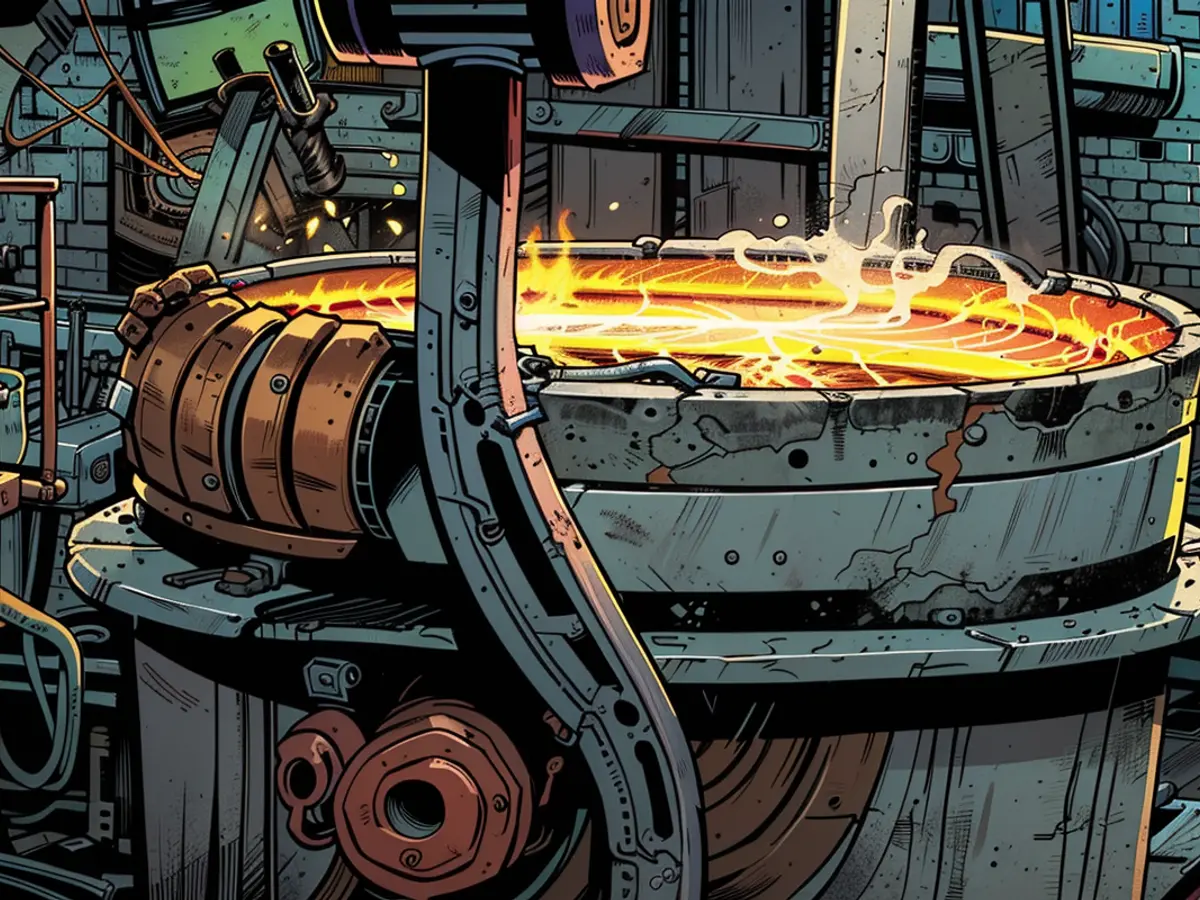German Steel Industries Seek Assistance
High Cost Energy, Failing Economy, and Cutthroat Competition: The Steel Industry is Struggling and Needing to Spend Heavily on a Green Makeover. Despite the Government Already Providing Billions in Aid, the State, Companies, and Unions Want More Than Money.
During the Steel Conference in Duisburg, the eleven German states with steel facilities urged the federal government to establish a conducive environment for preserving the German steel industry. Affordable energy and ample green hydrogen are required, they jointly demanded along with the German Steel Association and the IG Metall. Trade protection is also necessary to shield manufacturers from low-priced imports, primarily from Asia.
The German steel sector is in distress. This is due to the confluence of a weak economy, high energy costs, and inexpensive imports, particularly from Asia. At the same time, the industry is expected to become greener. The steel industry currently accounts for around seven percent of Germany's total greenhouse gas emissions. The industry aims to solve this issue by adopting new steel production methods utilizing climate-neutral hydrogen. The construction of these large-scale facilities is being subsidized by the government with multiple billions of euros. This is to convert one-third of the production capacity to climate-neutral energy by 2030.
The German steel-producing states, popularly known as the Steel Alliance, consist of Baden-Württemberg, Bavaria, Brandenburg, Bremen, Hamburg, Lower Saxony, North Rhine-Westphalia, the Saarland, Saxony, Saxony-Anhalt, and Thuringia. These states gathered in Duisburg at the invitation of North Rhine-Westphalia's Minister of Economy, Mona Neubaur, for the National Steel Conference along with other political, business, and union representatives.
Thousands of Jobs Threatened
The National Steel Plan was then handed over to Federal Minister of Economy Robert Habeck. Habeck emphasized that German steel production is "the starting point for many significant value chains" and is, thus, "also a crucial driver for key industries such as automotive and mechanical engineering, and their transformation." In the steel industry's decarbonization, Germany and the EU are "global pioneers," Habeck added.
"It's about many value chains that originate here and strengthen our economy," explained North Rhine-Westphalia's Minister President Hendrik Wüst. "International competition has intensified: higher energy prices, global oversupply, and the need to make production climate-neutral - these are challenges that can only be overcome with a modification of the framework conditions and collectively."
There had been growing concerns recently about the deteriorating state of the industry in Germany and a substantial job loss. Before the Steel Conference, Bundestag President Bärbel Bas had warned of the potential closure of several steelworks with 10,000 jobs at ThyssenKrupp's steel division.
Environmentalists See a "Potential Opportunity"
Employees expect "a clear stance from both the state government and the federal government on how they intend to manage the transition to green steel," said Bas in the WDR. Additional state aid is required for the long-term transition from coal to hydrogen as an energy source.
The CEO of SHS-Stahl-Holding-Saar, Stefan Rauber, criticized the federal government for abandoning the industry. "It's not sufficient to spend billions in state subsidies for steelworks," he told the business magazine "Capital". The energy-intensive industry as a whole needs a low and internationally competitive industrial electricity price, otherwise, "we'll lose competitiveness and risk thousands of jobs".
The environmental organization Germanwatch stated that a "well-orchestrated transition to climate neutrality" could be "a genuine opportunity for the sector" in the current situation. However, to capitalize on this opportunity, "politics and industry must collaborate decisively: with a clear roadmap and secure framework conditions for the transition, so that supply and demand for green steel can enter an upward spiral".
The German steel states, recognizing the struggle of the steel industry, urged the federal government to create an enabling environment with affordable energy and abundant green hydrogen. Despite government aid, they also advocate for trade protection to shield manufacturers from low-priced imports.
Worried about potential job losses, the CEO of SHS-Stahl-Holding-Saar criticized the government for not providing a low and internationally competitive industrial electricity price, fearing a loss of competitiveness for the energy-intensive industry.








